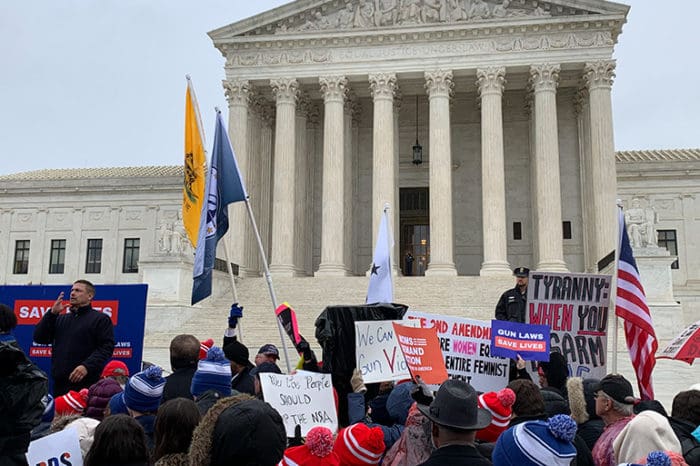The federal circuit courts are unanimous that the government has some power to bar convicted felons from owning guns, but they are divided on why, and on how far that power reaches. The Supreme Court has not yet ruled on this issue.
In D.C. v. Heller, which recognized the individual Second Amendment right to bear arms, the Court assumed that laws barring felons from owning guns were valid in general and cautioned that it was not overturning those laws. However, nobody before the Court raised the issue directly, so it did not examine their scope.
When you are convicted of a felony, you lose some of your civil rights. The government can lock you up. But not all rights are restricted in the same way.
While you are imprisoned, even your personal, natural rights such as free speech and freedom from searches are more limited. Other consequences follow even after a criminal sentence is served.
There are historical reasons why American law and the Constitution have not treated all of those consequences the same way. Free speech and the right against self-incrimination, for example, are fully restored once all aspects of a sentence are fully served. Felons’ rights to own guns and to vote are more restricted, but not in the same ways, and not for the same reasons.
This is not something Amy Coney Barrett made up, and it does not reflect well on people who are mad at her for taking the law and history in this area seriously.
– Dan McLaughlin in Amy Coney Barrett Is Right about Guns and Voting
